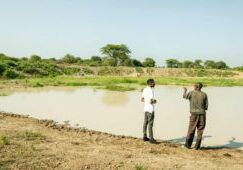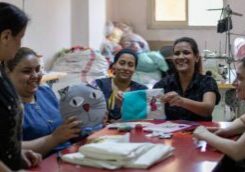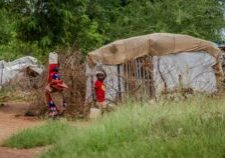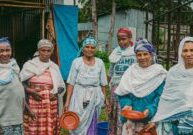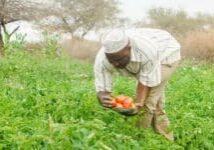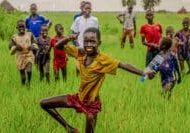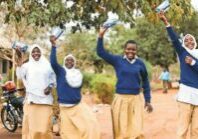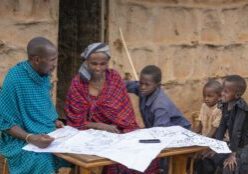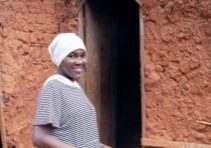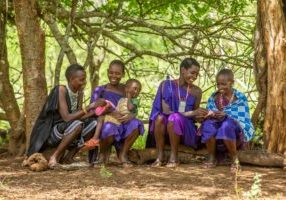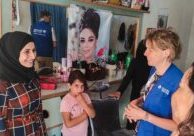Tanzania: Developing innovative solutions to protect livelihoods and promote social change
Tanzania has enjoyed peace for decades. However, stability at home has not yielded economic benefits, mainly due to Tanzania’s geographical location. It is a tourist hotspot surrounded by a sea of conflict. Tanzania has been a safe haven for refugees from neighbouring countries for over half a century. Yet after extensive efforts to welcome asylum seekers from war-torn nations, including Burundi and the Democratic Republic of Congo (DRC), patience is wearing thin. Tanzanians have their own problems to face.
Across the country, climate change threatens three-quarters of the population’s primary source of livelihood, agriculture. Therefore, Tanzania’s economy is particularly vulnerable to weather shocks and fluctuating commodity prices. On top of this, chronic poverty and malnutrition rates are soaring due to inadequate technology, lack of education and weak infrastructure. Female-headed households shunned by society are suffering the most from this situation.
Population
Tanzania has a population of 69.4 million people
Poverty
45% of people live below the poverty line ($2.15 a day)
Our Reach
In 2024 27,454 people took part in our programmes
What we do in Tanzania
Overview
Dorcas Tanzania supports people in rural communities to learn a trade, find work and grow their businesses. Our programmes focus on advancing new tools and techniques designed to fuel climate resilience.
We work to empower marginalised people by safeguarding their rights and increasing their access to inclusive basic services and resilient livelihoods. We raise awareness of the specific threats faced by people in conflict with the law, particularly women and girls, and improve gender equality.
Social Protection
We invest in children’s well-being and social development through early childhood development and social and financial skills training. Our children’s programme focuses on giving marginalised children access to inclusive education and training their caregivers and other adults to recognise child abuse and provide child protection support. We work with parents and caregivers to help them embrace positive parenting techniques and tackle issues at home. Our work with older people promotes community safety nets that improve older people’s safety, well-being and protection.
Entrepreneurship
Dorcas Tanzania trains local entrepreneurs to make optimum use of the energy, water and agricultural land around them. Untapped renewable energy sources are a game-changer for these entrepreneurs. We also encourage people to form Village Community Banking groups to save, borrow and prosper together.
We support marginalised groups in acquiring core skills through Technical and Vocational Education and Training (TVET), life skills training and tailor-made courses that form the building blocks for lifelong learning. Learning core skills also enables people to increase their household income and improve their living conditions. Over 500 young people have improved their entrepreneurial skills and financial literacy through these courses.
Climate resilience
In Tanzania, the adverse effects of climate change have already damaged the livelihoods of many people. Frequent and severe droughts have severely impacted food production and water availability. Deforestation and forest degradation, mainly due to charcoal production, are other serious problems. Dorcas Tanzania is tackling these issues through the clean cooking project and integrated farm planning.
Clean cooking positively impacts the lives of many Tanzanians. We supply families with an ultra-clean cooking stove, the Mimi Moto, fuelled by fuel pellets and briquettes. This stove improves family health, facilitates adaption to climate change and increases household resilience. Our value chain in producing and distributing fuel pellets and briquettes also provides new income-generation opportunities.
Through our PIP (integrated farm planning) programme, we support farmers to become more resilient to external shocks and increase their knowledge about agriculture and livestock. Dorcas Tanzania empowers families to tackle land degradation, increase their income, and implement climate-smart agricultural practices. All of these efforts enable communities to mitigate the adverse effects of climate change better.
Menstrual Hygiene Management
Dorcas Tanzania works to break the taboo around female menstruation and improve gender equality in northeast Tanzania. We have provided menstrual hygiene products and safer facilities at 75 schools and raised awareness about menstruation issues in 50 villages in the region.
This programme ensures families with a low income gain access to affordable and reusable sanitary pads, and it boosts the confidence of girls and women in rural areas. Girls’ school attendance has improved, resulting in more girls completing their education. We also work with teachers to raise awareness about the menstrual cycle and how to combat the stigma associated with this, and we help young girls become role models in menstrual hygiene.
Prison Care
We have the unique opportunity to work in prisons - helping prisoners heal and prepare to pick up their lives again upon release. We combine pastoral care with one-to-one training; where inmates learn to practice a profession.
The Future of Clean Cooking
Despite global efforts to endorse modern energy solutions, more than 2.5 billion people worldwide do not have access to a clean cooking facility (IEA, 2022). In Tanzania, this reality is particularly acute. Household air pollution, a result of burning woodfuel on open fires, has been linked to a number of serious health conditions including cancer, respiratory infections and even premature death.
Alarmingly, the problems don't end there. Smoke generated from burning woodfuel also releases harmful greenhouse emissions into the environment. Forest degradation and deforestation is another major consequence of the unsustainable harvesting of woodfuel. Still, rural communities, with little alternative, continue to rely heavily on traditional biomass stoves, with women and children worst affected.
Prison Care
We have the unique opportunity to work in prisons - helping prisoners heal and prepare to pick up their lives again upon release. We combine pastoral care with one-to-one training; where inmates learn to practice a profession.
Meet our Country Director…
Lilian Michael Urassa - Country Director Tanzania
"At Dorcas we believe all people have value and warrant God's mercy. That's why we make it our goal to include everyone in society in our response. This is particularly relevant in rural Tanzania where families depend heavily on subsistence farming and the rights of children, women and those with disabilities regularly come under threat. Awareness-raising, skills development and improved access to basic services are essential components for increasing productivity and ironing out centuries-old inequalities. This is how we can hope to change communities for the better."
News
Our partners
Programme Partners
- International Evangelism Church - Tanzania
- The Free Pentecostal Church of Tanzania
- The Anglican Church of Tanzania
- New Life in Christ
- Evangelical Lutheran Church in Tanzania
Strategic Partners and Donors
- Human Development Innovation Fund - UKAID
- AfriPads
- Supamoto
- ANZA Entrepreneurs and LEAD foundation- Kisiki Hai
- TAREA- Tanzania Renewable Energy Association
Contact Dorcas Tanzania
Address
P.O. Box 14385
Arusha, Tanzania
Primary Location:
Corridor Area, Mtoni Road Arusha, Block No. 5
Arusha, Tanzania.
Secondary Location:
Dorcas Training Center, Killi golf Estate Maji ya Chai, plot IV
Arusha, Tanzania
+255 626 102 102
Email address
office@tanzania.dorcas.org
